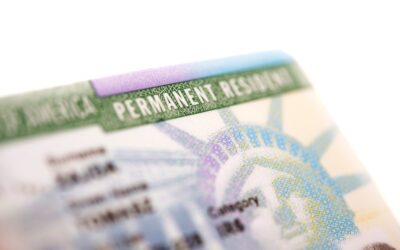The number of US citizens renouncing their citizenship continues to increase. A staggering quarter of Americans living abroad are contemplating this drastic move. They cite complex US tax filing requirements as well banking hassles related to FATCA as reasons to give up their American passports.
However, renouncing US citizenship is not a quick fix or an easy way out of tax obligations. The process is not only costly (the fee alone is over $2,000) and long; renunciation can even create tax obligations, like the dreaded exit tax.
Nonetheless, with the right renunciation tax planning and mitigation strategies, you can minimize the expatriation tax.
Still, renunciation is a big and irreversible step that can also have disadvantages.
In this article we cover:
- Renouncing Your US Citizenship – What Does That Mean?
- What Happens When You Renounce Your US Citizenship?
- What Are the Immigration Consequences After Renunciation?
- What Is The Cost Of Renouncing US Citizenship?
- Acquiring A Second Citizenship Before Renouncing
- Tax Implications Of Renunciation
- What Is A Covered Expat?
- Exceptions To Covered Expat Rules
- What Is Exit Tax?
- Higher Taxes On Inheritance And Gifts For Non-Citizens
- Pre-Expatriation Planning Tips
- Tax Mitigation Strategies For US Spouses
- Social Security And Retirement Payments After Renunciation
- How To Renounce Your US Citizenship – Step By Step Process
- Penalties For Not Filing The Expatriation Form 8854
- Renunciation Relief For Accidental Americans
- Quick Answers: US Citizenship Renunciation for Expats
- Navigating The Tax Complexity Of Renouncing US Citizenship
Renouncing Your US Citizenship – What Does That Mean?
“Renunciation – The voluntary act of relinquishing one’s citizenship or nationality.”
Renunciation is also sometimes referred to as Expatriation. From a taxation perspective, renunciation does not only apply to citizens but also to long-term green card holders.
While it sounds simple, citizenship renunciation is actually a complex process governed by US laws. Relinquishing a green card follows a simpler process. However, long-term permanent residents follow the same process as US citizens and may even face green card exit tax, as well.
Instead of just moving abroad and letting your American passport (or green card) expire, you must file paperwork, pay a steep fee, take an oath in front of a US consular officer, and potentially even pay an exit tax.
Letting your passport or green card expire does not get you out of your US tax filing obligations! In both cases, you must formally renounce and are responsible to file your tax return until you do so. (More about the expatriation tax and how to renounce your US citizenship with detailed process steps later in this article.)
Despite these significant hurdles, more and more Americans are giving up their passport. Before taking this drastic step, make sure you understand all implications of renouncing.
What Happens When You Renounce Your US Citizenship?
Though renunciation has become increasingly popular, it is a decision that requires careful consideration. Not just because of its tax implications.
When giving up your US citizenship, you are fully surrendering all the rights associated with being an American citizen.
This includes the right to vote, your ability to visit and work in the United States, eligibility for military pensions, and potential support from the US government in an emergency.
Personal circumstances, such as your financial situation, your long-term plans, and the expected taxation in your new country, play a key role.
However, US tax issues should also be a major factor in your decision. You need to determine whether you will be considered a “covered expat” and therefore subject to exit tax. (More about this in a moment). There are also US tax implications for future gifts and inheritance.
It’s also important to realize that renouncing US citizenship is not an easy way out of paying taxes. Depending on your specific situation, you might still have to file a US tax return.
To minimize the exit tax when renouncing your US citizenship, you should plan carefully with the help of an expert to avoid costly mistakes. You can schedule a consultation with our experts.
What Are the Immigration Consequences After Renunciation?
Beyond tax implications, renunciation creates permanent US immigration consequences that many people don’t consider. Once you renounce, you lose all rights associated with US citizenship, including the automatic right to enter and remain in the United States.
As a former US citizen, you’ll be subject to the same visa requirements as any foreign national. This means applying for tourist visas, being limited to 90-day stays under the Visa Waiver Program (if your new country participates), and having no guarantee of entry even for family emergencies.
The Reed Amendment poses an even more serious risk. Former citizens who renounced for tax avoidance purposes may be permanently barred from US entry. The IRS can recommend this immigration bar for covered expatriates, and once imposed, it’s extremely difficult to overcome. This means you could be permanently separated from family members who remain in the US.
Family considerations extend beyond just your own situation. You’ll no longer be able to sponsor family members for US immigration benefits, and your children may face different rules for acquiring or maintaining US citizenship in the future.
Additionally, you’ll lose access to emergency consular assistance that US citizens receive when traveling abroad.
What Is The Cost Of Renouncing US Citizenship?
You do have to pay to renounce your US citizenship, it is not free. Far from it. The renunciation fee alone is a steep $2,350, although the State Department recently proposed to lower it to $450.
In addition, you have to travel to a United States consulate at least once for the interview and renunciation oath.
On the tax side, you need to file and pay back taxes if you have not been tax-compliant in the prior 5 years. For Americans that are “covered expats”, exit tax is another cost of renunciation. We explain this in more detail below.
You want to engage the help of an experienced tax accountant to navigate this. They can also advise on the pre-expatriation planning and tax mitigation strategies mentioned above.
Acquiring A Second Citizenship Before Renouncing
Additional costs can include acquiring a second citizenship if you don’t have one already. Some countries offer citizenship by investment, which usually comes at a significant price tag. The cheapest are some small island nations and require a donation of just over $100,000. An EU passport can require investments and/or donations of up to $1 million.
Citizenship through residency is cheaper but usually takes at least 5-7 years. Typically, you have to establish residency for a certain number of years before becoming eligible to apply for citizenship.
During that time, you may need to spend significant time in the country. Some countries require only several weeks a year, but others require at least 6 months per year or more. The citizenship process then often takes another 1-2 years.
Acquiring a passport based on ancestry is another option but it is not quick, either. Typically, it takes 2-3 years after you submit all paperwork. And there might be language tests or briefly living in the country (in order to expediate the process), which all adds to time and cost.
We can advise on options for acquiring a second passport.
Tax Implications Of Renunciation
A common myth about renunciation is that it means you will be free from the American tax regime.
However, when you have US-sourced income, maybe from a rental property, you still must file a tax return, even when you are not a US citizen anymore.
In addition, the process of renunciation and no longer holding a US passport can create new tax liabilities. These potential new expenses include an exit tax for “covered expats” and increases in inheritance and gift taxes.
What Is A Covered Expat?
When planning to renounce your US citizenship, it is crucial to determine whether you are a “covered expatriate”. Covered expats may have to pay an exit tax when renouncing citizenship.
You are considered a covered expat if you fit into one or more of the following categories:
- Your average annual US income tax liability over the last five years is greater than $197,000 for 2025 (this threshold adjusts annually for inflation).
- Your net worth is equal to or greater than $2 million at the time of renunciation.
- You have not been tax-compliant for the last five years.
Married couples must each qualify individually.
Exceptions To Covered Expat Rules
The IRS allows exceptions to the Covered Expat rules for certain dual citizens and minors. If you meet the exception definition below, the amount of your income tax liability or net worth won’t matter. But you must be tax compliant and certify that by filing IRS Form 8854.
- Dual citizens by birth who are still a citizen and tax-resident of the other country AND who have not been a United State resident for more than 10 of the last 15 years.
- Minors who expatriated before they are 18 ½ years old AND who have not been a United States resident for more than 10 of the last 15 years.
Use the Substantial Presence Test to determine residency.
To find out if you qualify, talk to our renunciation tax experts.
What Is Exit Tax?
You could think of exit tax as the theoretical taxes incurred if you sold your entire worldwide estate and financial accounts the day before renunciation. This even applies to assets that cannot be sold. The phantom profits of these deemed sales are then taxed.
The taxes apply to capital gains exceeding the exit tax exclusion, $821,000 for 2024 (adjusted to $861,000 for 2025). The exclusion amount is adjusted annually for inflation.
This means that when renouncing in 2025, you can exclude the first $861,000 of deemed capital gains from the tax. As a covered expatriate, you pay tax at the highest marginal tax brackets.
Tax-deferred accounts like IRAs and HSAs are not subject to capital gains tax. A deemed distribution of these accounts does not fall under the exit tax exclusion. Instead, it is taxed as ordinary income.
There are also special rules for deferred compensation and interest in non-grantor trusts. For more details, check out our article about exit tax.
Higher Taxes On Inheritance And Gifts For Non-Citizens
Another critical change after renunciation is increased taxes on inheritances and gifts. A key concern is that US heirs of non-US citizens face higher estate taxes.
The 2023 estate tax exemption for US citizens is $12.92 million, so they can shield a significant amount from estate taxes. Non-US citizens however are only exempt up to $60,000.
The only plus side for non-US citizens or residents is that estate and gift tax applies only to assets “situated” in the United States. For these reasons, it is crucial to structure your estate properly.
Between two US spouses, tax-free gifts are unlimited. However, the IRS taxes gifts from a US spouse to a non-US spouse if they exceed the marital deduction for gifts to a non-US spouse. And this deduction is only $175,000 (2023).
Pre-Expatriation Planning Tips
To minimize the tax implications of relinquishing your US citizenship, there are several steps you can take. For example, giving away assets can help you stay below the net worth threshold of $2 million for covered expats. Common ways to do this include moving your assets to a trust and giving assets to a non-US resident alien spouse or next of kin.
US citizens can gift up to $12.92 million tax free (as of 2023) under the lifetime gifting exemption. It may be beneficial to make gifts above this amount to minimize future inheritance taxes depending on your situation.
An additional strategy is to give away appreciated assets to minimize the mark-to-market tax. A covered expatriate may make gifts before expatriation, but it is important to do so carefully and strategically. For example, the gift of the asset must be made the year before the year of renunciation. Otherwise, it will be counted in the covered expat net worth/exit tax calculation.
Tax Mitigation Strategies For US Spouses
American spouses with assets in the US may consider having only one spouse renounce. The US spouse would keep any US assets, e.g. a house. The non-US spouse would take the foreign assets.
By the US spouse taking ownership of the US assets, it mitigates not only the estate tax risk. It also allows for the US spouse to file any US taxes or potentially avoid withholding requirements for dividends, interest, or sale of real estate (known as FIRPTA rules).
The non-US spouse would hold all the non-US assets, therefore not needing to report foreign bank accounts, income etc. By keeping one spouse as a US person, it also allows the renouncing spouse the opportunity to get sponsored for a green card should the couple decide to return to the US.
This is a high-level general strategy that may not be the best approach in every situation. Consult with an expert to see if it makes sense for your specific situation.
Social Security And Retirement Payments After Renunciation
After expatriating, you are still eligible to receive social security if you previously qualified by having enough credits.
You can also still receive your 401(k) and pension, albeit both are subject to US taxes and possibly taxes in your new country. You may have to file a 1040NR return unless there is an automatic withholding.
Be aware that after expatriating, covered expats cannot claim tax treaty relief on automatic tax withholding on pensions, 401(k), etc. Our specialists can perform an analysis to decide whether someone should liquidate their IRA/401k upon expatriation (and get hit with taxes/penalties) or hold on to it and become subject to 30% withholding.
Military pensions, however, are revoked when one expatriates as the person can no longer be called into active military service as a non-citizen.
How To Renounce Your US Citizenship – Step By Step Process
Renouncing the American citizenship is not a quick event but a complex and often long process. Here, we can only give a high-level overview for information purposes. This is not legal advice! Please consult with a specialist about your situation.
In general, these are the 6 steps to renounce American citizenship:
- Obtain a second passport.
- Be up to date on your US taxes.
- Prepare expatriation paperwork.
- Book your appointment.
- Attend your renunciation appointment.
- File your final US tax return.
Let’s review each step in more detail.
1. Obtain a second passport
It is your right to expatriate. However, if you expatriate without a second passport, you run the risk of becoming stateless. For this reason, you should obtain a second passport before renunciation.
You can typically obtain an additional passport through family, investment programs, or residency programs that lead to citizenship. Popular programs include Nevis, Antigua, Malta, Bulgaria, Granada, Domenica, Spain, Portugal, Panama, Turkey, and more.
2. Be up to date on your US taxes
In order to renounce and not automatically be considered a covered expat, you need to be up to date on filing the last 5 years of US tax returns. If you haven’t filed your US taxes, you might be able to use the Streamlined Procedures to get into tax compliance without incurring huge penalties.
3. Prepare expatriation paperwork
You will need to fill out the form called “Request for Determination of Possible Loss of US Citizenship,” also known as form DS-4079, and attach supporting documents, including a birth certificate or certificate of naturalization from the country of your second passport.
Be aware that the reason for renunciation cannot be taxes. You need to have an acceptable reason for renouncing citizenship. Examples for acceptable reasons include a stronger connection to another country, you no longer live in the United States and will not return, or an injustice experienced as an American.
4. Book your appointment
Ideally, you book an appointment at the embassy or consulate in the country or city where you plan to live once you renounce your passport. However, you can also use a consulate in another country or city.
We have seen clients save time by going to renounce in a neighboring country as some of the more common countries can have long waiting lists (UK, Canada, Singapore, Israel, etc). It makes sense to shop around and research the consulates. Besides wait times for appointments, there are process inconsistencies. Some require at least two visits, others let you complete it in one appointment.
5. Attend your renunciation appointment
Make sure you bring the following to your renunciation appointment:
- US passport
- Second passport
- Birth certificate or naturalization certificate associated with the second passport
Also, familiarize yourself with the form you will have to fill out during the appointment, e.g., DS-4079, DS-4080, DS 4081. Check the website of the embassy or consulate where your appointment is for a complete list of required documents.
At the end of your appointment, you will receive a Certificate of Loss of Nationality (CLN).
6. File your final US tax return
Your final tax return will be from January 1 through the day that you expatriate. If your renunciation date is any day other than December 31, you will need to file both Form 1040 and 1040NR (if applicable) for your final return. Form 1040 covers your time as citizen, Form 1040NR is for the time you are a non-resident non-citizen.
If you are a covered expat, you must calculate your exit tax on IRS Form 8854. Failure to file this form means you are still liable for US income tax indefinitely – even after you have completed the renunciation for immigration purposes.
You likely already had foreign accounts before expatriation. If they exceed the reporting threshold, you must still declare those foreign accounts one last time by filing FinCEN Form 114.
Keep in mind that if you continue to have income in the US, including pensions or rental properties, you must still file annual tax returns.
Penalties For Not Filing The Expatriation Form 8854
You must file your IRS Form 8854 when you expatriate. If you do not, the IRS could impose a significant fine, up to $10,000.
In very limited situations, the IRS Relief Procedures for Certain Former Citizens (Expat Relief) may eliminate the taxes, interest, penalties, and exit taxes incurred when relinquishing citizenship.
Renunciation Relief For Accidental Americans
Accidental Americans, persons who acquired citizenship of the United States through birth but never lived there, often have a rude awakening when they find out that they were supposed to file US tax returns every year.
Accidental Americans, that meet strict requirements, may qualify under the above-mentioned relief program. They must still submit their prior five years of tax returns before renouncing. But they won’t be liable to pay any tax or penalties.
As with any IRS relief program, this may end in the future. If it applies to you, you should use it while it is available.
Quick Answers: US Citizenship Renunciation for Expats
Who Should Consider US Citizenship Renunciation?
Renunciation may be suitable for long-term green card holders leaving the US, wealthy Americans in low-tax countries, US citizens with foreign spouses starting families abroad, and naturalized citizens returning to their home countries. However, it’s generally not advisable for those planning frequent US visits, people with substantial retirement accounts, or military pension recipients.
When is the best time to renounce US citizenship?
Early in the calendar year is optimal to allow adequate time for final tax planning and required filings. Begin planning 1-2 years in advance for asset restructuring and gift planning. Market timing also matters as asset valuations directly impact exit tax calculations.
How long does the US citizenship renunciation process take?
Up to 12-18 months total, including up to 6 months for consular appointments, 3-6 months processing, plus additional time for tax compliance preparation. Plan well in advance due to appointment backlogs at many consulates.
What are alternatives to renouncing US citizenship?
Green card holders can surrender permanent resident status for similar tax relief with less permanence. Tax treaty strategies may eliminate double taxation without renunciation. Compliance-first approaches through Streamlined Procedures often resolve underlying tax concerns that motivate renunciation.
How does US citizenship renunciation affect banking and investments?
Most US banks close accounts for non-resident aliens, making banking extremely difficult. Mutual fund companies often force account liquidation, and brokerage accounts may be closed. US real estate ownership becomes more complex under FIRPTA rules. Credit cards are frequently cancelled. Establish international banking relationships before renouncing.
Navigating The Tax Complexity Of Renouncing US Citizenship
Giving up your citizenship is a big life decision – you want to do it right.
The process of renunciation is complex with a high risk of mistakes and potential unintended consequences. You’ll need to manage requirements from the State Department, IRS, Social Security Administration, and Department of Homeland Security, each with distinct rules and deadlines.
Without careful planning, you can be exposed to substantial taxation.
Before giving up US citizenship, consulting a tax professional is highly advisable. At GEA, we have guided many clients through the process of renunciation and can advise you on the exact strategies you need to make the process successful. Book a renunciation consultation with our experts.





